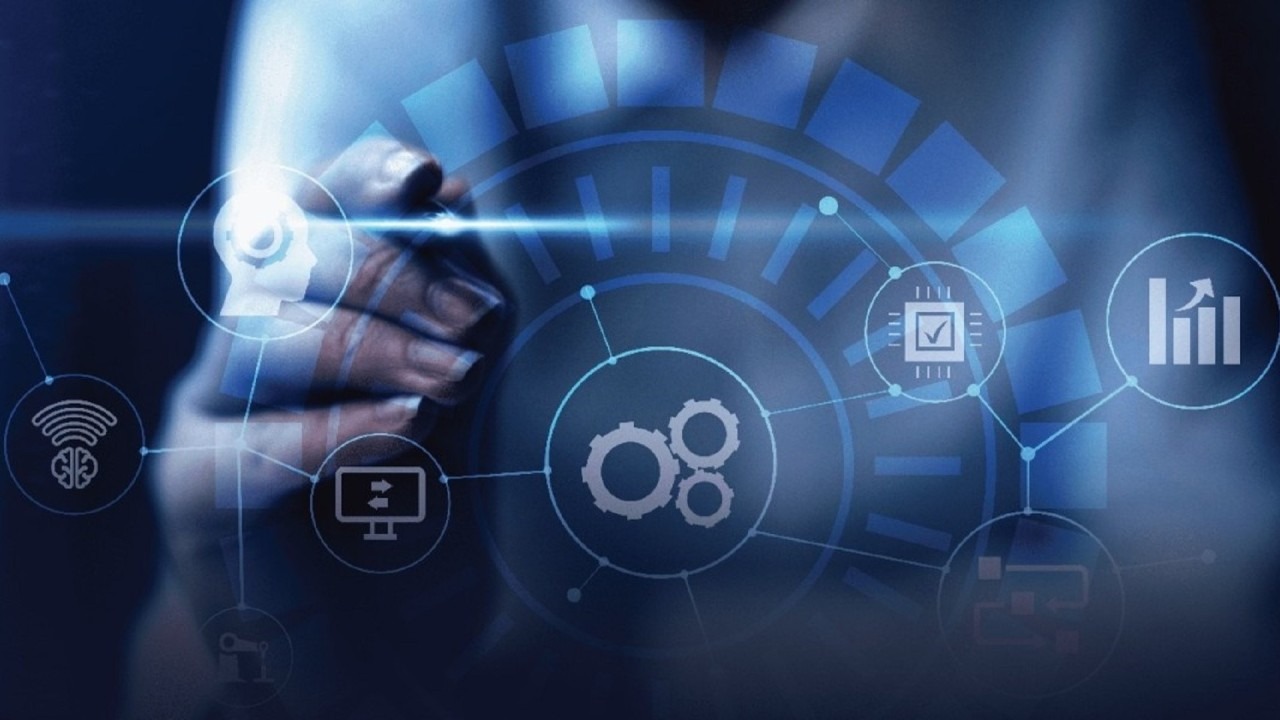Introduction of Artificial Intelligence and Software Development:
The fusion of Artificial Intelligence (AI) and software development marks a transformative era in the tech landscape, reshaping how we conceive, design, and deploy software solutions. This integration not only accelerates the pace of innovation but also enhances the capabilities of software systems, making them more intuitive, efficient, and adaptable to the evolving needs of users and industries. As AI technologies like machine learning, natural language processing, and robotics become more sophisticated, their application within software development promises to unlock unprecedented levels of productivity and creativity, heralding a new age of digital transformation.
The implications of this convergence are profound, affecting everything from the development process and user experience to security and ethical considerations. Software developers are now equipped with AI tools that automate mundane tasks, optimize code, and predict user behavior, allowing them to focus on more complex and innovative aspects of software creation. Meanwhile, businesses and consumers alike stand to benefit from Artificial Intelligence-driven software that offers personalized experiences, smarter decision-making support, and enhanced performance. This article delves into the core aspects of how Artificial Intelligence is revolutionizing software development, setting the stage for a future where technology is not just a tool but a partner in our digital journey.
Artificial Intelligence-Driven Development Tools:
“The advent of AI-driven development tools has been a game-changer for software engineers, significantly streamlining the coding process and enhancing productivity. These tools leverage AI algorithms to automate routine tasks such as code generation, testing, and debugging, freeing developers to focus on more strategic aspects of the project. For instance, AI-powered code assistants can suggest optimizations, identify potential errors before they occur, and even write chunks of code based on natural language descriptions provided by the developer, dramatically reducing development time and improving code quality.” Says Jon Lynn, founder of My Office Pod
Moreover, AI-driven tools are transforming the way developers approach problem-solving and innovation. By analyzing vast datasets and identifying patterns, these tools can offer insights and recommendations that might not be immediately obvious to human developers. This capability not only accelerates the development process but also opens up new possibilities for creating software that is more responsive to user needs and market trends. As these tools continue to evolve, they are set to redefine the boundaries of what can be achieved in software development, making it more efficient, creative, and impactful.
Enhancing User Experience with Artificial Intelligence:
“AI is playing a pivotal role in elevating the user experience (UX) of software applications, making them more intuitive, personalized, and engaging. By leveraging machine learning algorithms, software can now understand and predict user behavior, preferences, and needs with remarkable accuracy. This enables developers to create applications that adapt in real-time to provide users with a tailored experience, whether it’s through personalized content, intelligent recommendations, or dynamic interface adjustments. The result is software that not only meets the functional requirements of users but also delivers a more satisfying and immersive experience.” Says Jessica Shee from iBoysoft
In addition to personalization, Artificial Intelligence is enhancing UX through natural language processing (NLP) technologies, allowing users to interact with software in more natural and human-like ways. Voice assistants and chatbots powered by AI can understand and process natural language queries, making it easier for users to communicate with applications and access the information or services they need. This not only improves accessibility and usability but also opens up new avenues for human-computer interaction, where software feels more like a conversational partner than a tool.
Artificial Intelligence in Software Testing and Quality Assurance:
“AI is revolutionizing the field of software testing and quality assurance by introducing automation and intelligence into the process. Traditional testing methods are often time-consuming and prone to human error, but AI-driven testing tools can automate repetitive tasks, analyze test results with greater accuracy, and identify bugs or vulnerabilities that might be missed by manual testing. For example, machine learning algorithms can learn from past test data to predict and prioritize potential problem areas in new versions of the software, enabling testers to focus their efforts where they are most needed.” Says Marley Hayles, Digital Marketing Manager at HomeTree
Furthermore, AI enhances the quality assurance process by simulating real-world user behavior and testing scenarios, providing a more comprehensive assessment of software performance and user experience. This not only ensures that software products are of higher quality but also reduces the time and resources required for testing. As Artificial Intelligence technologies continue to advance, they will play an increasingly critical role in ensuring that software is reliable, secure, and meets the highest standards of quality.
Ethical Considerations and AI in Software Development:
“As AI becomes more integrated into software development, ethical considerations have come to the forefront. The use of AI raises questions about privacy, security, and fairness, particularly when it comes to the handling of user data and the decisions made by AI-driven systems. Developers and companies must navigate these ethical challenges carefully, ensuring that AI is use responsibly and transparently. This includes implementing robust data protection measures, being transparent about how AI systems make decisions, and ensuring that those decisions do not perpetuate bias or discrimination.” Says Daniel Foley, Co-founder at Assertive Media
Addressing these ethical considerations is not just about mitigating risks but also about building trust with users. As software becomes more intelligent and autonomous, users need to feel confident that their data is safe, their privacy is respected, and the software they use is fair and unbiased. This trust is essential for the continued adoption and success of AI-driven software, making ethical considerations a critical aspect of development in this new era.
Conclusion:
The integration of AI into software development is not just a trend but a fundamental shift in how we create, deploy, and interact with technology. It offers immense potential to enhance efficiency, creativity, and user satisfaction, but it also presents new challenges and ethical considerations that must be address. As we move forward, the collaboration between AI and software development will undoubtedly continue to evolve, driving innovation and transforming the digital landscape. By embracing this change and navigating its complexities responsibly, we can unlock the full potential of AI to create software that not only meets the demands of today but also anticipates the needs of tomorrow.









